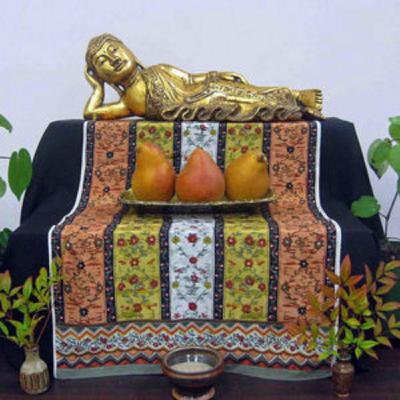Discover AZC Weekly talks
AZC Weekly talks

AZC Weekly talks
Author: Auckland Zen Centre
Subscribed: 70Played: 812Subscribe
Share
© Copyright by Auckland Zen Centre. All rights reserved.
Description
In this podcast you can find almost all the talks given at the Auckland Zen Centre, back to 2016. Most talks are by Roshi Amala Wrightson, but there are also talks from Sensei Richard von Sturmer and senior students too.
310 Episodes
Reverse
This is the third in a series of koans centred on the natural world. The koan is Case 38 in the MumonkanBooks used in the teisho:Zen's Chinese Heritage by Andy Ferguson and The Gateless Barrier by Robert Aitken.
The three fruits of Zen practice are, 1. joriki or concentration, 2. kensho, or seeing your True Nature and 3. mujo do no taigen, or embodiment of the peerless way.Source: Ruben Habito's Foreword to The Flowing Bridge by Elaine MacInnes, Wisdom 2007.
More from the Shobogenzo Zuimonki on effort.Source: A Primer of Soto Zen translated by Reiho Masunaga.
Sources: How to Train an Ox and Primer of Soto Zen.
Dōgen's Fukan Zazengi, "General Recommendations for Doing Zazen"Source: How to Raise an Ox by Francis Dojun Cook.
Dōgen's talks from the Eihei Kōruku, Part Two.Sources: Dōgen's Extensive Record: Eihei Kōroku translated by Taigen Dan Leighton and Shohaku Okumura, and The Art of Just Sitting edited by John Daido Loori.
Dōgen's talks from the Eihei Kōruku, Part One.Source: Dōgen's Extensive Record: Eihei Kōroku translated by Taigen Dan Leighton and Shohaku Okumura.
Dōgen's early life.Source: Zen Master Dōgen - An Introduction with Selected Writings by Yūhō Yokoi with Daizen Victoria.
Looking at all ten cardinal precepts from the angle of Bodhidharma's One Mind teachings.Source(s): Invoking Reality by John Daido Loori.
This is the second in a series of koans centred on the natural world. The koan is Case 37 in the Mumonkan, Zhaozhou's Cypress Tree in the Courtyard.Sources: Pilgrim at Tinker's Creek by Annie Dillard and Two Zen Classics by Katsuki Sekida.
Not-self is the third of the Three Marks of Existence, and is also referred to as emptiness of self, or just Emptiness. It can be understood intellectually when examined through the lenses of impermanence and dependent co-arising. It can also be directly experienced when we forget ourself.Sources: There is No Suffering by Master Sheng Yen, Dharma Drum 2001, and What makes you not a Buddhist, by Dzongsar Jamyang Khyentse, Shambhala 2008.
This is the third in a series on teachers in the Auckland Zen Centre's lineage.Sources: Endless Vow: the Path of Soen Nakagawa Roshi by Roko Sherry ChayatOriginal Dwelling Place by Robert AitkenRemembering Nakagawa Soen Roshi by Estelle Gerard.
Description: Teachings on determination, generosity and gratitude.Source: Ichi Tantei One Doing -- Tangen-roshi of Bukkokuji Teisho, translations by Belenda Attaway Yamakawa, Edited by Ron Klein.
Description: Anecdotes and teachings.Source: Ichi Tantei - One doing, Tangen-roshi of Bukkokuji, teisho translations by Belenda Attaway Yamakawa, edited by Ron Klein.
Description: Anecdotes and teachings.Source: Ichi Tantei - One doing, Tangen-roshi of Bukkokuji, teisho translations by Belenda Attaway Yamakawa, edited by Ron Klein.
Description: Constant flow.Source: Zen's Chinese Heritage by Andy Fergusson.
Description: Constant flow.
Some pointers and cautions for zazen at the beginning of our 7-day sesshin.Sources: Various.
Second in a series of talks on The Three Marks of Existence, Impermanence, Suffering and Not-Self. Suffering is a core teaching of Buddhism. The Buddha said "I teach but two things; suffering and the way out of suffering." Buddhism addresses our personal suffering as well as equipping us to be able to effectively help other beings to find liberation.Sources: Dharma Rain eds Stephanie Kaza and Kenneth Kraft and There Is No Suffering Master Sheng Yen.
This is the first in a series of koans centred on the natural world. The koan is Case 46 in the Blue Cliff Record.Sources: Zen's Chinese Heritage by Andy Ferguson and A Step Away from Paradise by Thomas Shor.





